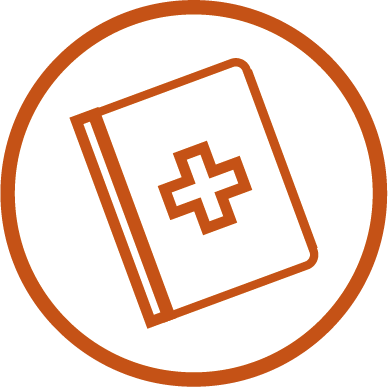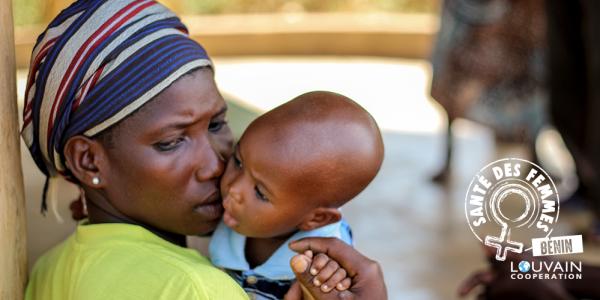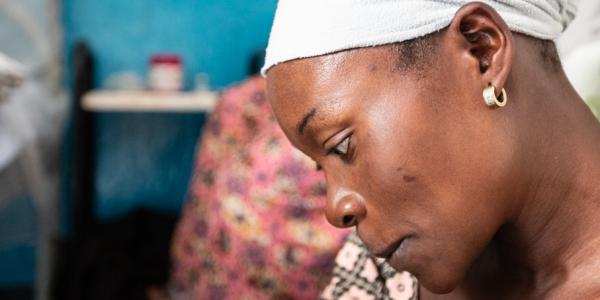Social protection
Louvain Coopération facilitates access to quality healthcare for rural populations and those in the informal sector, through the development of the mutualist movement at community, regional and national levels, with a view to protecting individuals against the financial risks that can tip them into poverty.
Beyond the financial coverage of healthcare, mutual insurance companies are a fantastic tool for raising awareness and preventing disease.
By mobilizing their members, they help spread essential messages about public health:
- Fight against chronic diseases: information and support campaigns on diabetes and high blood pressure, with activities on nutrition and the promotion of sport. Informing and combating diabetes and hypertension
- Women's health: organization of prevention and screening campaigns for breast and cervical cancer. Specific care for women accounts for 15% of the procedures provided by our mutual insurance companies
- Sexual and reproductive education: initiatives to inform young women and empower them to take care of their health. Benin: ESTHER informs young women about sexuality
In most African countries, only a minority of the population benefits from any form of social protection. Existing health insurance covers 10 to 15% of the population, namely civil servants, the army, teachers and sometimes certain private sector employees. The vast majority of the population works in the informal sector, for which there is currently no official health insurance.
In several countries where we are present – particularly in Benin, Togo and Burundi – health coverage remains extremely limited. Less than 10% of the population has official health insurance, leaving the majority of families exposed to medical expenses that can tip them into precariousness.
Our actions are based on support at several levels:
- Basic mutual insurance companies, which provide local health coverage at the municipal level,
- National and provincial structures, which strengthen the management and sustainability of the mutual insurance system.
Thanks to third-party payment, beneficiaries avoid the debt associated with medical emergencies.
Louvain Coopération has made an animated film on the importance of mutual health insurance companies in African countries for the development of rural family businesses.
Discover the movie: Un film pour mieux comprendre le rôle socio-économique des mutuelles de santé
You can support Louvain Coopération by making a donation, by becoming a volunteer or by sharing our actions to make more people aware of the need for equitable social protection.
The third-party payment system means that members of mutual insurance companies only pay a fraction of the cost of care at the time of the consultation. The mutual insurance company pays the rest of the costs directly to the healthcare providers.
To meet current challenges, Louvain Coopération promotes the integration of mutuals into broader development programs, including agricultural, microcredit and food security components, in order to strengthen their community roots and economic viability.
Partnerships with local cooperatives are also encouraged to pool resources and skills. In addition, the use of digital tools is being developed to improve the management of member data, facilitate the monitoring of services and optimize financial transparency.
Social protection encompasses all the mechanisms designed to reduce the vulnerability of populations to the risks of life: illness, old age, unemployment or accidents. It aims to guarantee fair access to essential services for all, particularly in terms of health.
Strength in unity
The social protection promoted by Louvain Coopération is based on a solidarity model in which communities organize themselves to provide healthcare coverage tailored to their needs. This model is particularly relevant in contexts where public insurance systems are insufficient or non-existent.
Access to healthcare is a fundamental right, but it remains unevenly distributed, particularly in countries in the Global South, where rural populations and those in the informal sector are particularly vulnerable.
In order to provide a concrete response, Louvain Coopération is committed to the development of the mutualist movement to offer quality healthcare coverage to those who need it most.
In addition to the development of mutual insurance companies, initiatives such as the digitization of health services, public-private partnerships and the training of health professionals contribute to better accessibility to quality care.
Mutual insurance companies cover medical consultations, basic hospital care, essential medicines and sometimes specialized care such as screening for diabetes, hypertension and female cancers.
Social protection ensures that vulnerable populations have fair access to healthcare and prevents situations of precariousness due to unexpected medical expenses. It contributes to the economic and social stability of communities.
Our actions
FAQ
You can support Louvain Coopération by making a donation, by becoming a volunteer or by sharing our actions to make more people aware of the need for equitable social protection.
The third-party payment system means that members of mutual insurance companies only pay a fraction of the cost of care at the time of the consultation. The mutual insurance company pays the rest of the costs directly to the healthcare providers.
In addition to the development of mutual insurance companies, initiatives such as the digitization of health services, public-private partnerships and the training of health professionals contribute to better accessibility to quality care.
Mutual insurance companies cover medical consultations, basic hospital care, essential medicines and sometimes specialized care such as screening for diabetes, hypertension and female cancers.
Social protection ensures that vulnerable populations have fair access to healthcare and prevents situations of precariousness due to unexpected medical expenses. It contributes to the economic and social stability of communities.



